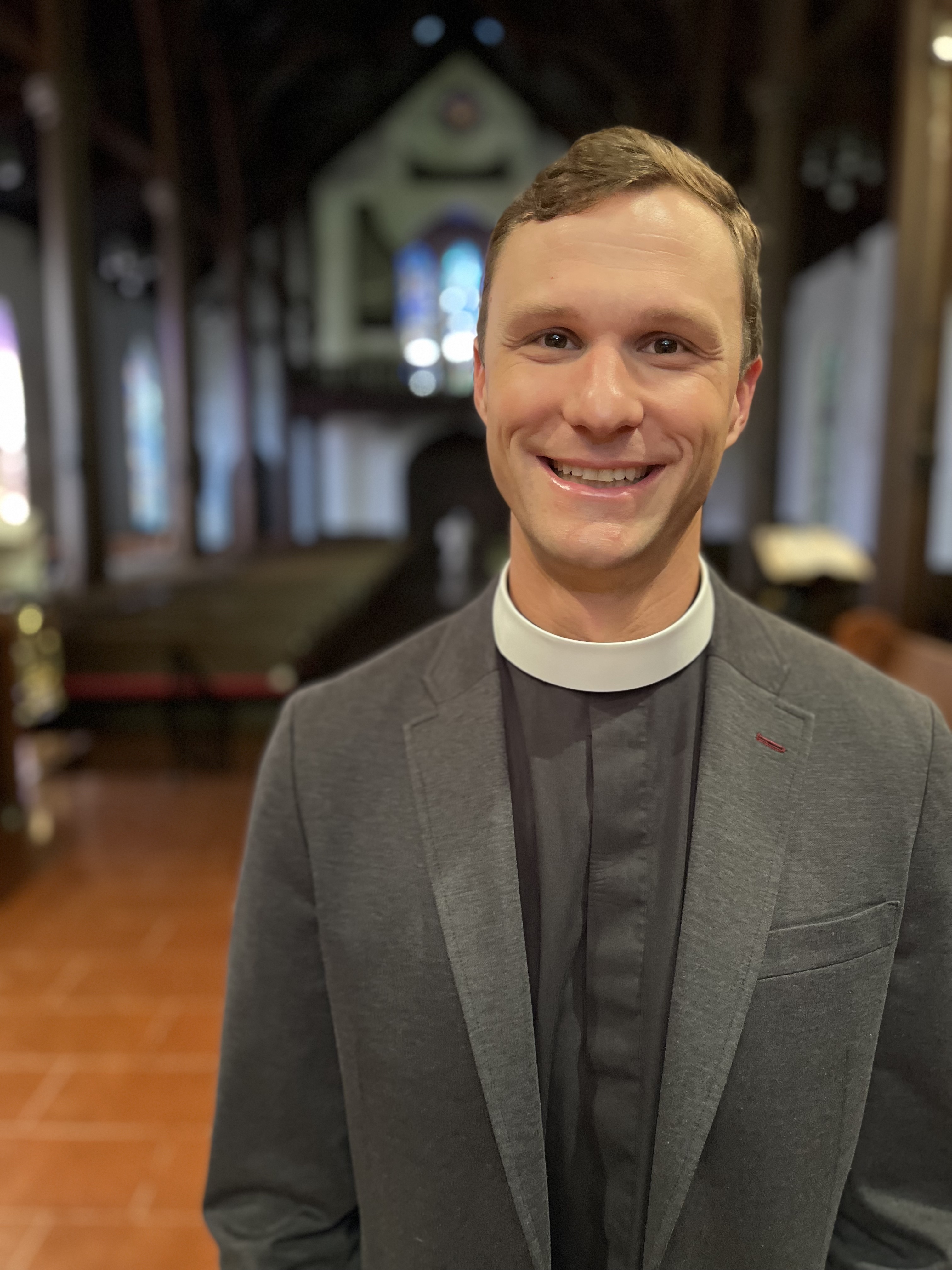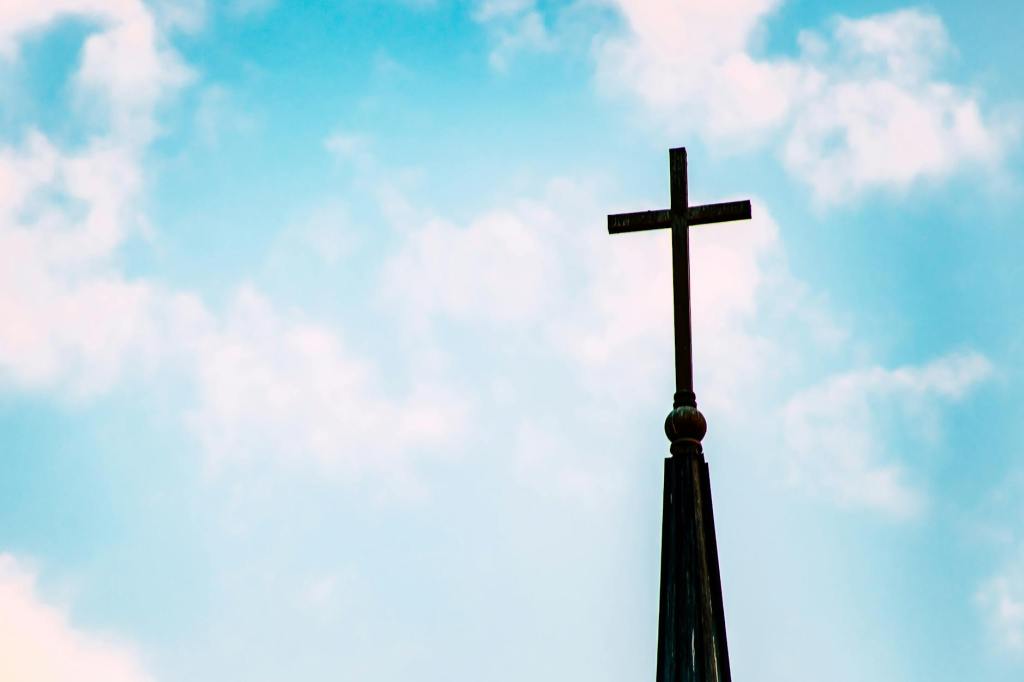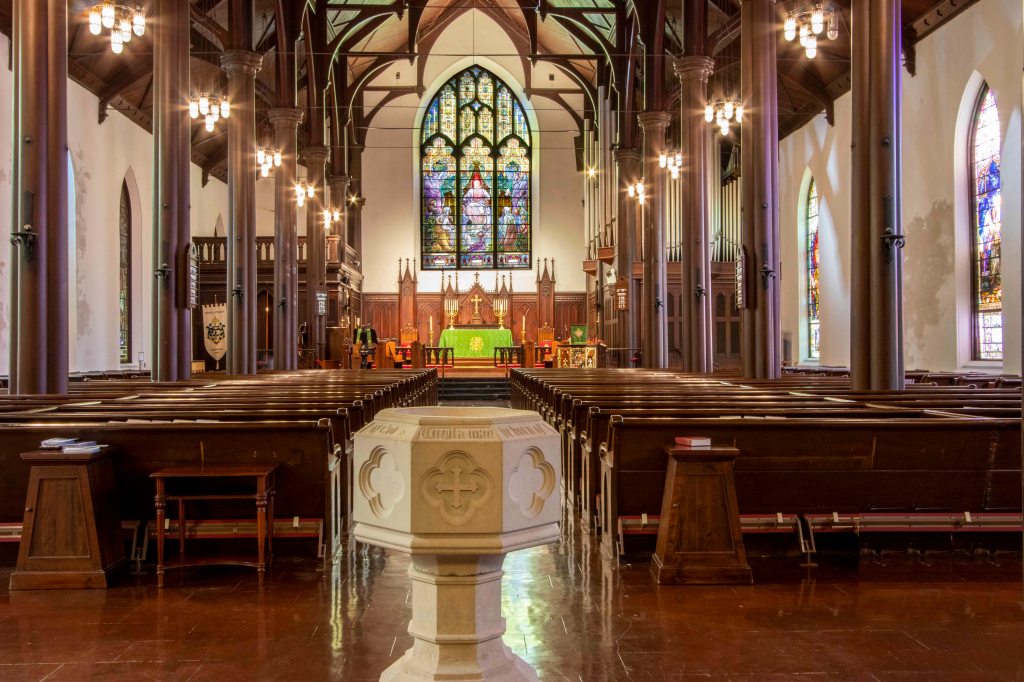The Rev. Jimmy Abbott
Second Sunday of Easter
April 23, 2017
John 20:19-31
Certainty
I want to begin this morning by talking about potatoes. Yes, ordinary, run of the mill potatoes. You can boil ‘em, mash ‘em, put ‘em in a stew. You know, potatoes. But, there has been a controversy about potatoes recently. A vociferous debate on the internet about potatoes. See, someone put forward this proposition: “Everything in the universe is either a potato, or not a potato.” Yes, the Internet does discuss such things.
But really, think about it: “Everything in the universe is either a potato, or not a potato.” Huh. Kind of an odd way to think about the universe, but on the surface, we suppose it’s true. Your pet gerbil, Halley’s Comet, the Grand Parkway are not potatoes. Your pet gerbil is not a potato, it’s a gerbil. Halley’s Comet is not a potato, it’s a comet. The Grand Parkway is a not a potato, it’s a concrete monstrosity. Potatoes are potatoes.
It’s such a simple way to categorize the world. This is this and that is that. Black is black and white is white. Until, that is, we start peeling back the layers on the potato question. And yes, pun was intended.
Everything in the universe is either a potato, or not a potato. Well, what about a potato seed? At what point does the seed cease being a seed and become a full-blown potato? Or, at what point in the digestive process does the potato cease to become a potato? And what about potato chips? What about french fries? What about hash browns? Are those still potatoes or are they something altogether different? And what makes them non-potatoes? Is it when they’re chopped? When they’re cooked? When they’re packaged? Suddenly, after just a few questions, we find that the universe is much more complex than potatoes and non-potatoes. Our categories fall short.
And suddenly, Thomas finds that the world is much more complex than living people and dead people. Even that category fails us. You can’t blame Thomas, can you? His whole world is composed of either living people or dead people. Even Lazarus, who had been raised from the dead, simply became a living person again. Lazarus still fit into these neat categories.
For some reason, we don’t know why, but Thomas was not there with the disciples when Jesus first presented himself to them as risen from the dead. The disciples are thrilled. They say to Thomas, “we have seen the Lord!” He’s not dead, but he’s not quite living either. He’s, he’s something else.
Thomas likes the world to be this or that. Thomas likes a universe where everything is a potato or not a potato. Thomas says, “unless I see the mark of the nails in his hands, and put my finger in the mark of the nails and my hand in his side, I will not believe.” Thomas is being logical. He’s looking at the world in the categories that he knows. Living and dead.
That is, until, Thomas sees Jesus. When Thomas does finally see Jesus a week later, Thomas does not need to touch Jesus. Seeing is enough for him. Seeing is believing. Thomas sees that Jesus is Lord of the living and the dead, and then some. And Thomas makes that great acclamation of his own faith, “My Lord and my God!”
What God did on Easter was to blow up the old categories. There is living and dead certainly, but there is also resurrection. Not quite dead, not quite alive, but something more. It’s this other thing, this other way of being.
It’s that third way, that other way, that resurrected way, that I think Christians are called to live by. We are called to see as Thomas sees. To see neither fully one thing, nor fully the other. But something different, something more. To stop seeing us and them. To stop seeing me and you. To stop seeing the universe as either potatoes or not potatoes. Like Thomas, we are called to see more.
The world presents us with these cheap, fabricated, and ridiculous binaries. Men, women. Old, young. Democrat, Republican. And we, in large measure, have bought into those categories. If you’re not this, you must be that. If you don’t watch Fox News, you must watch MSNBC. If you live in Texas, surely you must carry a gun. If you live in California, surely you must be a hippie. Like I said, cheap, fabricated, and ridiculous binaries. The only thing that has accomplished for us is to alienate, oppress, and condemn people who are not like us.
And we, we have fallen into these cheap, fabricated and ridiculous categories even in the church. Myself included. Men, you have your own group. Women, you have your own group. Kids, here. Teenagers, there. Parents, here. And so on. This can be good because each of those groups has shared experiences, but taken too far, it can be to our detriment.
We, in the Church, need to see a third way. Indeed, the Church is one of the last places in society that is truly inter-generational and gender mixed. This is one of our great strengths. Older people stay fresh when surrounded by younger people. Younger people learn wisdom from older people. Men and women learn from each other, not just about each other. Look around this room, there are no bifurcated people in here, who claim one identity as their own. No, we are more than that because God created us as more than that. One of the coolest moments every week for me, is getting ready for the services in the Vesting room. You have everything from eight year olds to eighty year olds, but in God’s eyes, we’re all beloved children. We laugh together, we pray together, we serve together, we worship together. The Church should never be split apart and dissected, we need to be that wonderful, fertile ground for growth, for reflection, and for joy.
And that is who we are as Episcopalians. Neither Catholic, nor Protestant. We are third way. Neither this, nor that. But something different, something more.
This third way, however, is not the easy way. Seeing Jesus with fresh eyes can be awfully intimidating. When confronted with ambiguity, it is very easy to become afraid, and to retreat into our old dichotomies.
I think that’s why humans crave certainty. Ambiguity scares us. If it’s not this or that, we become easily confused. That’s why we have to categorize and sort people. That’s why Thomas absolutely has to have it right. That’s why we have to be right. Part of the spiritual journey is moving away from these certainties. The spiritual journey, the journey with Thomas, the journey toward Jesus, is a journey to greater awareness, a journey to humility, the journey to see things in new ways.
This spiritual journey is difficult. John of the Cross, an old Spanish monk and mystic writes about this. He says that, in the monastery, it’s easy to tell the new monks from the experienced monks. The new monks, he says, think they know it all. They know how to pray. How to contemplate, how to meditate. It’s the newbies that think they have it all together and lord it over everybody else. But, he says, that is only a sign of an empty spiritual life. It’s the spiritually mature, John of the Cross says, that go through the dark night of the soul. It’s there, in the darkness with God, that one is given this new way of life with Jesus. It’s in the darkness, alone, with humility, that all the pride and vainglory is stripped away. It’s in the dark night of the soul that we see Jesus, and see that all our past attempts to categorize the world have been fruitless. Thomas has his own dark night, when his friends tell him that Jesus is alive, but he doesn’t believe it. That’s when everything is stripped away so that he can finally see God.
Why is it that humans crave certainty? Why is that we have to categorize and sort people? Why is that we have to be right? It’s because we’re spiritually immature. We have not yet seen Jesus as Thomas sees Jesus.
I pray, that God opens our eyes to see Jesus as Thomas sees Jesus, and then to be given new sight, new belief. To see something different, something more. I pray that we see the world not as black or white, but as a beautiful, vibrant, living rainbow of color. I pray we see that potatoes are potatoes are french fries are hash browns are potato chips. We see each other for who we truly are, beloved children of God.






Leave a comment